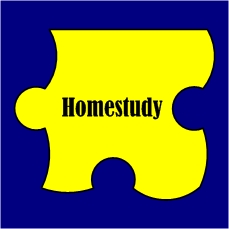How Could You? Hall of Shame-Paul and Yvonne Caitano

This will be an archive of heinous actions by those involved in child welfare, foster care and adoption. We forewarn you that these are deeply disturbing stories that may involve sex abuse, murder, kidnapping and other horrendous actions.
From Hilo, Hawaii, Paul and Yvonne Caitano adopted 5 foster children and took in another five foster children.
“First, one of the children, after being returned to her biological parents, reported that Paul Caitano had sexually assaulted her. The 10 children were removed from the house and placed with other families or facilities. In April of this year, Paul Caitano was charged with 23 felony counts of sexually assaulting two girls in the household.
Eight months after the children were removed, Yvonne Caitano and four others were indicted by a federal grand jury, accused of illegally getting pharmacies to provide large amounts of opioids and powerful narcotics and illegally distributing them for profit.
The defendants included Dr. Ernest Bade, 80 years old at the time and later found to be incompetent to stand trial because of dementia, and four women who worked at his medical clinic — Caitano, her then-80-year-old mother, her adult daughter and an unrelated women. A federal judge, finding that office manager Caitano was at the heart of the operation, sentenced her in 2020 to five years in prison.
One aggravating factor was that one of the children living with the Caitanos, 14 years old at the time, was forced to take part in the drug operation. The girl was told to count out pills and put them in envelope for customers who drove to the house to buy them. If she miscounted the pills or the money, the girl reported, she’d get berated — or beaten.
One of the children who lived in the Caitano household told Civil Beat that physical and mental abuse was common. The children were forced to stand facing a corner for a perceived infraction, sometimes all day or all night, she said.
“We’d get hit with belts or slippers or anything in reach — phone chargers,” she said.
The Bade drug ring garnered widespread media attention. But the Caitanos’ connection to the state’s foster care system has gone unexamined.
Civil Beat asked the Department of Human Services, the parent of CWS, how long the Caitanos had been fostering and adopting children, how much they were paid by the state over the years, whether the state got other reports of abuse or neglect before the February 2018 removal of the children and how often CWS visited the foster children to check on their welfare.
The department would not respond to most questions, citing a provision of Hawaii law that keeps the identity of foster parents confidential. Specifically, the department would not say when it first got reports of abuse in the Caitano household.”
“Caitanos were receiving a lot of money from the state for fostering and adopting the children, both because of the number of children and also because some of them were classified as requiring extra care. The state’s monthly payments for children in foster care or who have been adopted ranges from $649 to $776, depending on the age, but those figures do not account for extra payments for children with exceptional needs.
A federal judge in Yvonne Caitano’s case at one point raised the possibility that the state had paid the Caitanos $120,000 even after removing the children from their home. Yvonne Caitano’s lawyer, at her sentencing, said that the concerns over fraud had been cleared up. DHS would not disclose what it learned about the payments.
In any case, the amount in question gives a sense of how much the Caitanos were getting from the state for their role as foster or adoptive parents of 10 children.
Court documents lay out how one of the children was used as a runner in the drug scheme.”
“Caitano, at work at the Bade clinic, would call her mother, Marie Benevides, at her house to say that someone was coming by to purchase pills. Benevides would tell the girl to put a certain number of pills in an envelope, take it to the customer’s car and collect the money. If the pill counts or cash totals were wrong, according to the criminal complaint, Caitano’s adult daughter, Sheena Strong, would verbally or physically abuse the girl.
She told investigators that “the money they got from selling the pills was used to buy random stuff to store in containers in the garage or pay off credit cards and bills,” according to the complaint.
Clearly, the Caitanos’ role as foster parents was well-known in their community, as evidenced by letters written to the federal court judge pleading for leniency for Yvonne Caitano.
“Through the years, I have witnessed Yvonne conduct herself in a loving and nurturing manner – from fostering five children to later adopting them and giving them the loving home” that they lacked, one wrote. “In addition to her five children, Yvonne has always been there for many other less fortunate children.”
The teenager who spoke to Civil Beat took a different view. When her adoptive parents got into trouble, she said, “I was happy. It was a start to them getting what they gave us all those years.””
Hawaii Sent At Least 10 Foster Children To An Abusive Home At The Center Of A Drug Ring
[Honolulu Civil Beat 11/22/22 by John Hill]
REFORM Puzzle Piece


Recent Comments